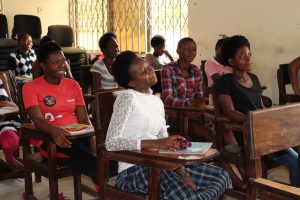“International Literacy Day, celebrated annually on 8 September, is an opportunity for Governments, civil society and stakeholders to highlight improvements in world literacy rates, and reflect on the world’s remaining literacy challenges. The issue of literacy is a key component of the UN’s Sustainable Development Goals and the UN’s 2030 Agenda for Sustainable Development. ” (read more)
In the Upper East Region in northern Ghana where YHFG and JPG carry out several projects, only 48% of women and 47% of men aged 15-24 years are literate. It was also reported that only 28% of children of secondary school age (>11) attend secondary education or higher, exact ages were not indicated. The Upper East Region is mainly rural, the main source of income is farming, and school attendance and literacy rates are lower than elsewhere in Ghana. (read more)
Education is the key!

Education is the key to fight illiteracy. Our goal is that each and every child in northern Ghana has access to primary and secondary education. Not only access to school but as well success in school with meaningful learning outcomes. In rural northern Ghana, teenage pregnancy and child marriage are some of the factors with negative impact on the school cycle of the young woman: Girls who fail in their school exams risk a future without further options than to marry at a very young age. To fight this problem, YHFG is active in various campaigns and programmes against child marriage and runs its own remedial school. Girls who failed the final exams in the first place can visit the YHFG remedial school classes for free, to get properly prepared for their second second attempt to pass the final exams. After passing the final exams, the girls can continue their secondary school education (read more).
